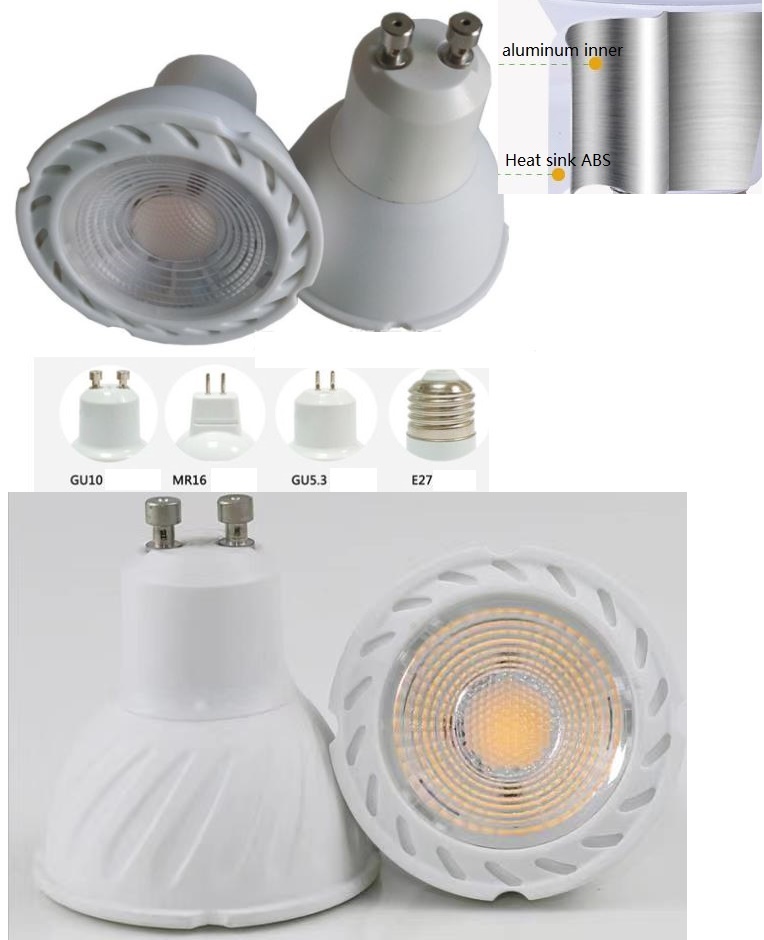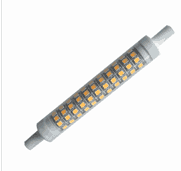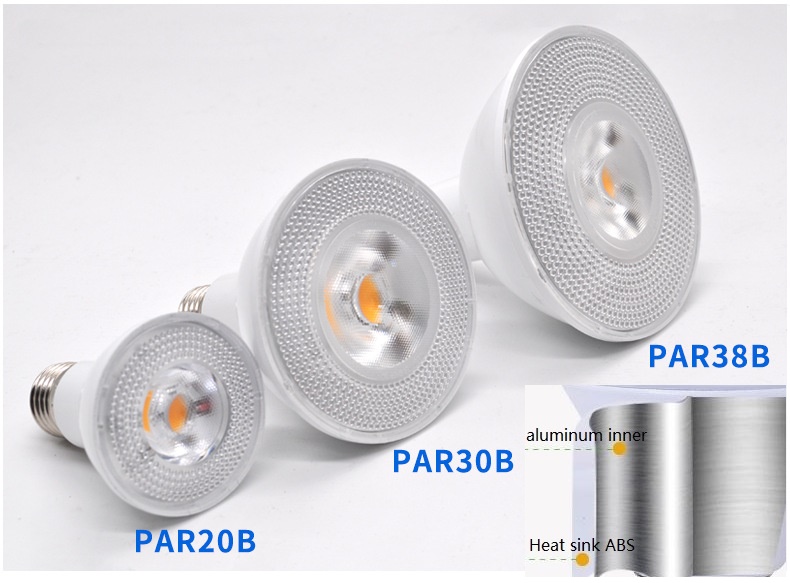Phase dimming LED bulbs, Dimmable LED bulbs work on traditional dimmer to dimming LED lights which commonly mounted in the wall or for desk lamp. AC110V, 120V, 60Hz mains voltage operation Dimmable LED bulbs and Spotlights work on traditional dimmer which commonly mounted in the wall or for desk lamp.
LED lights flickering and dimming. Reasons why your LED lights keep flickering
Flickering lights could be caused by many factors. For example, flickering led downlights, flickering halogen lights, or bulbs that flicker only when dimmed can all cause flickering. Here are 10 possible reasons your lights might be flickering. We also give some tips to help you get them back to normal.
However, LED lights can still be a problem. Many people report that their LED lights flicker, even after replacing bulbs.
Sounds familiar? You may be wondering why your LED lights are flickering. Below are some top reasons. Keep reading!
Compatibility of Downlight and Dimmer
Are LED lights dimmable and flickering? Continue reading.
Flickering can be caused by compatibility issues between the downlight and dimmer. The downlights and dimmer must communicate in harmony. Flickering can be caused by using old dimmers that were originally designed for halogen lamps on LED downlights. They may not work but you should test them first.
You should use LED dimmers to control LED downlights. If the brand has been tested, you can take the issue to the supplier to have it fixed. Quality dimmers are worth the investment. Cheap dimmers will lead to higher costs in the end.
The Ripple Effect
The ripple effect is an effect of ripple control, which is a form a electricity load control. Ripple control is common in Australia, particularly in NSW and QLD. This allows electricity suppliers manage peak demand.
Without ripple control, electricity grids will not be able cater to everyone's demands. Not controlling loads can cause damage to power plant facilities. It can take them a while to get back online if this happens.
The reduction of energy supply to certain areas in AU is an important part of ripple control. This happens at the same time each day, depending on the current peak demand. It can vary from 7 to 10 in the morning to 5 or 10 in the night in some areas.
Ripple control can reduce energy supply and cause LED lights to flicker. Again, this is due to the bulbs' low power requirements.
The ripple effect can be magnified if you have multiple home appliances. These devices will still consume the same amount even if the energy supply drops. Your LED lights would then be powered by very little energy, if any.
Loose Connections
Flickering LED lights can sometimes be caused by loosely-fitting bulbs. This is because the socket isn’t making enough contact with the bulb. Intermittent flickering can result from even the smallest bulb movement.
It is important to note that LED downlights, or "recessed lights", can become looser over time.
Flickering downlights can be fixed by tightening the screws. Excessive force can cause bulbs to crack if handled with care. To be safe, use a glove, even though LED bulbs emit very little infrared radiation.
Sockets that are dirty or dusty
Dust can build up on the LED bulbs' surfaces and get into the sockets. Dirt can build up on the surfaces of your LED bulbs and cause flickering. This is a great time to clean and remove dirt from the sockets.
To give the sockets a better clean, it is best to first unscrew the bulbs. Make sure you turn off the power before cleaning the light sockets.
Electric Wiring - Loose
Fun fact: Australia's home-remodeling market is worth $32 billion. Why? Many of the Land Down Under homes have been around since the 1980s.
Many older homes have experienced a variety of electrical problems. These problems could be why your LED lights are flickering in your older house.
An electrician should be called if the flickering continues after you have tried cleaning out the sockets and secured the bulbs. There may be a problem with your electrical wiring, which can cause fire hazards.
Incompatible Dimmers
It is important to consider LED compatibility when buying light dimmers. Many LED globes won't work with traditional dimmers and will eventually fail. Even if the bulbs do light up, you will soon see your dimmable light bulb flicker.
Traditional lights use dimmers that are designed for high-wattage incandescent bulbs. They change the current flow to the bulbs by changing it evenly. To reduce the energy flowing into the circuit, they also have a fast on/off cycle.
The "persistence" of old light bulbs is what causes the dimming effect. These bulbs gradually "shut down" when they are switched off. The dimmer switches on and off quickly, so the lights never go completely out.
They instead stay between, thus the dimmed effect.
This is not the case with LED bulbs. They cease emitting light almost immediately after they stop receiving current. Dimmers that are made for older bulbs can cause LED lights to flicker if dimmed.
Installation of non-dimmable LED bulbs in LED dimmers
Even if the socket does not have a dimming function, dimmable LED lights can still work. This defeats the purpose for investing in dimmable lighting products.
Dimmers that do not have an LED bulb with a dimmable function will cause them to flicker or hum. These bulbs will dim as dimmable dimmers, but only if the dimmer is set to 100%.
Also, dimmers that use non-dimmable LED lighting can reduce their service life. Their lifespan will decrease the more they flicker.
Inrush Current from Other Appliances
Are your LED bulbs flickering when you turn on high voltage/wattage appliances These appliances include electric stoves, wall or area air conditioners, heaters and washers.
These "ghostly" experiences you have with your LED lights are due to inrush current. Inrush current is the energy that appliances draw when they turn on for the first time. They can reduce the voltage because they sucking a lot of energy.
Your LED lights may flicker or dim if they are connected to the same circuit as your appliances. Remember that LED lights can be up to 75% more efficient than older halogen lights. They use less energy and can be turned on or off by reducing current flow.
Appliances that use a lot of electricity should have their own circuits. They won't disrupt the flow of electricity to other devices like your LED bulbs.
Circuits that are overloaded
It is okay to have many appliances, as long as the meter box can hold them all. This is the part that distributes electricity to your entire home. The first sign that your current one is not meeting your growing energy needs would be flickering LEDs.
Inrush current occurs when an appliance is turned on for the first time. Circuit overload can occur if you add more appliances to your home. Your electrical system can't handle the current they are consuming.
An electrician can help you assess if your meter box is still suitable for your needs. You will need to replace it with one that has a higher rating. This will not only fix your flickering LEDs, but also protect you from electrical hazards.
There are other things you can do if your LED lights keep flickering
You can reduce flickering LED light incidents by relying less upon the grid. This is especially true in situations where you cannot control the grid, such as ripple management. You can't change this but you can minimize its impact by going solar.
Solar lights make use of the sun's energy which is almost unlimited and free. These lighting products can be used to illuminate your home without requiring you to plug in the electrical panel. Your solar lights will still be lit even if the ripple effect is felt in your home.
Solar lights can even be carried around so that you have a backup source of light in case the power goes out. Solar energy is also cleaner and more sustainable than fossil fuel-based electricity.
An electrician can also install a ripple signal filters on your meter box. This device helps eliminate the ripple effect that causes your LED lights to flicker.
Fix flickering issues to make your LED lights last longer
LED lights have a life expectancy of at least 25.000 hours. This is 25 to 50 percent longer than the life span of incandescent bulbs and 5 to 10 times longer than the lifespan of halogen. Exposing them to conditions that cause them to flicker can shorten their lives.
If your LED lights are constantly flickering, it is best to identify the problem and repair it immediately. Your LED bulbs will last longer if you act quickly.


